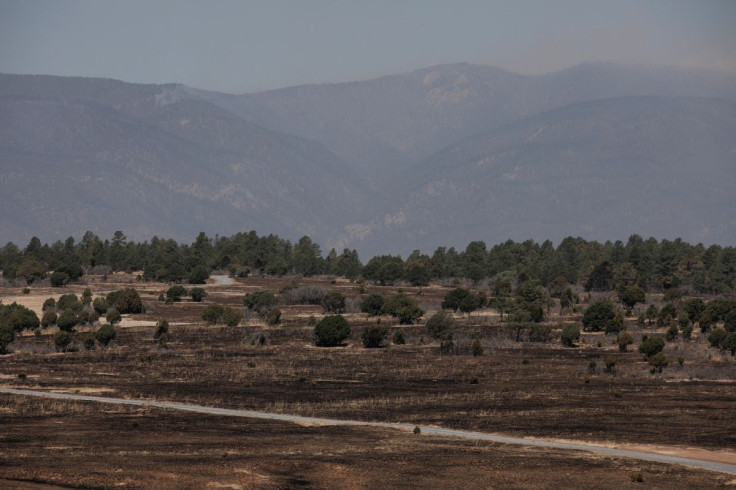Largest U.S. Wildfire Threatens New Mexico Town, Ski Resort

Strong winds drove the largest U.S. wildfire toward a New Mexico ski resort and the 1,000-year-old community of Taos on Wednesday.
As people evacuated, flames raced through parched forests and firefighters tried to protect homes from a blaze that has burned a 45-mile long path up the Sangre de Cristo mountains in just over a month.
Families in Taos Canyon and the Angel Fire ski resort crammed belongings into cars and trailers after they were told to be ready to go.
"There is a possibility with the models that we're running, that those areas are going to see fire," Todd Abel, a battalion chief with the National Wildfire Coordinating Group, told a briefing.
In immediate danger was the village of Chacon where villagers stayed to defend homes that have been in their families since Spanish-Mexican land grants of the 1820s when the area was not yet part of the United States.
"There is a lot of fire heading that way, so I highly recommend people evacuate," Abel said.
Northern New Mexico is caught in its worst drought in at least 500 years. Climate change has reduced snowpacks and dried out high-mountain forests and valleys, according to scientists.
A century of fire suppression and court bans on logging since the 1990s have left forests overcrowded and clogged with fuel, biologists say.
The so-called Hermits Peak Calf Canyon fire has destroyed forests and watersheds used by Indo-Hispano farmers and ranching villages that have relied on them for centuries for logging, firewood and irrigation.
It now threatens forests where the Picuris Pueblo and Taos Pueblo Native American tribes have hunted and gathered building materials for around 1,000 years.
The fire has burned hundreds of homes and over 236,928 acres (95,881 hectares) of land, an area larger than all five boroughs of New York City. It is 33 percent contained.
© Copyright Thomson Reuters {{Year}}. All rights reserved.





















